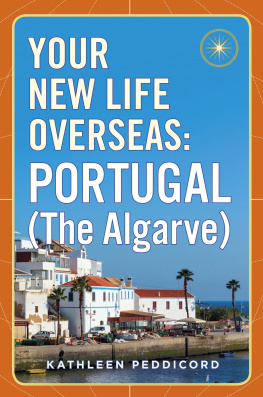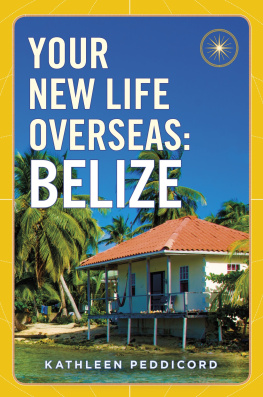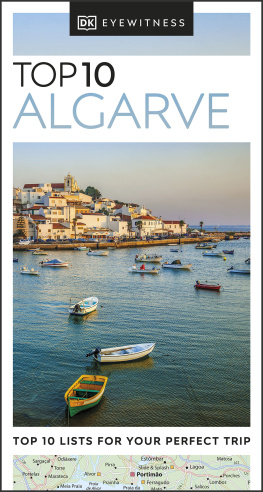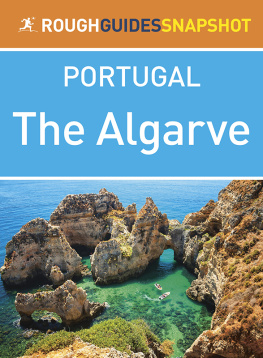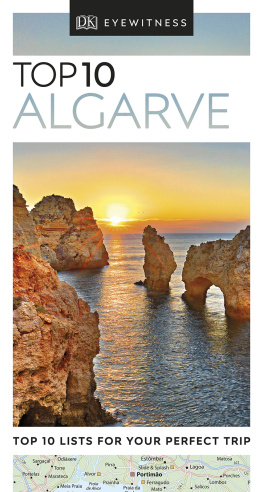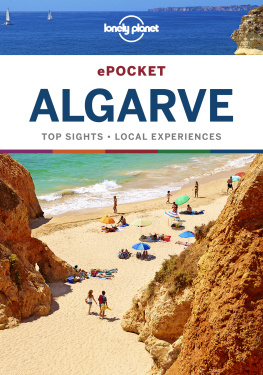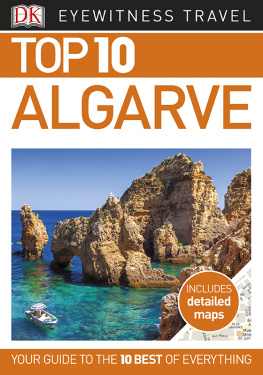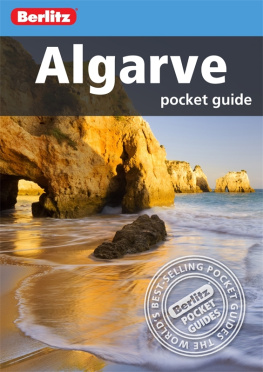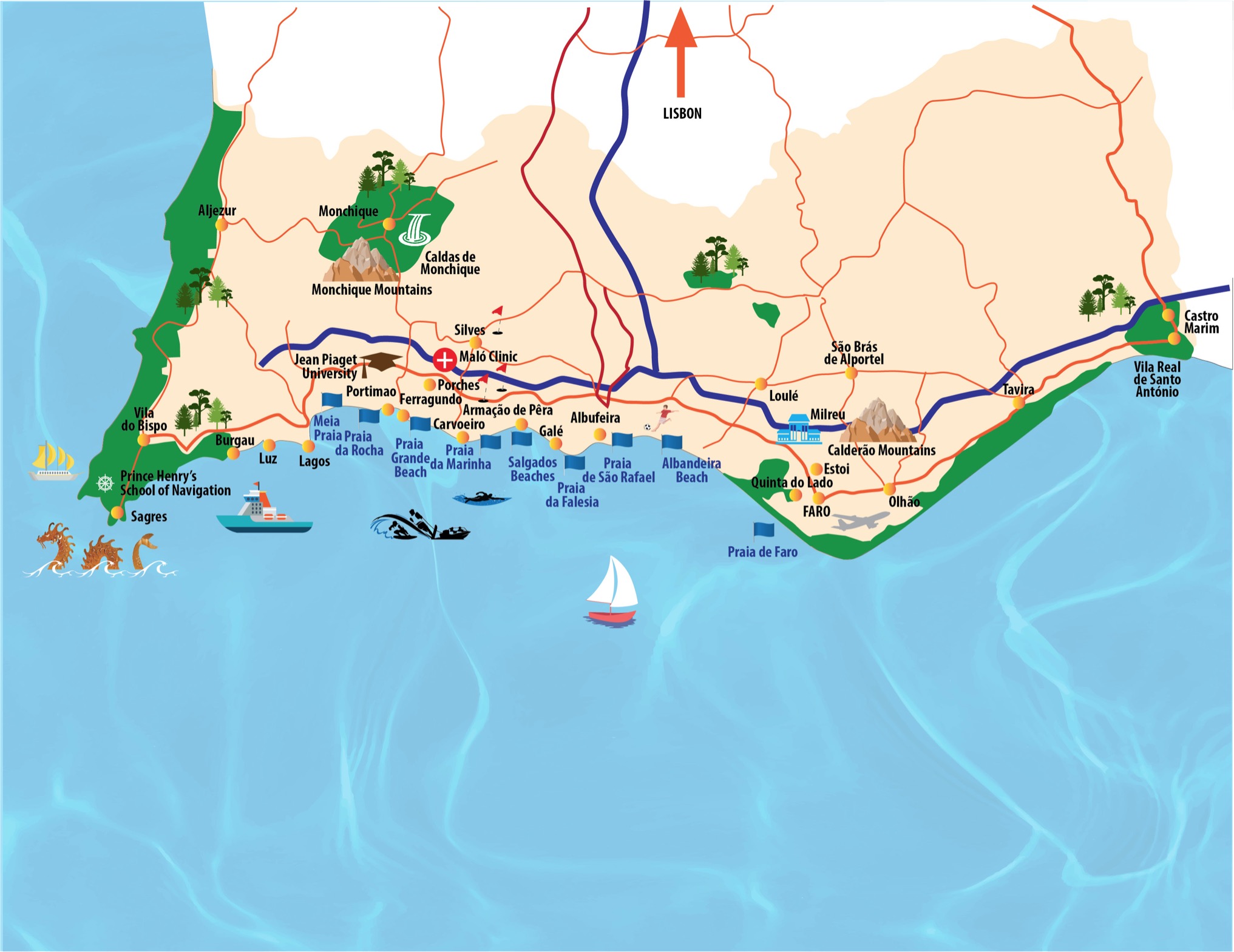Your New Life Overseas
Portugal (The Algarve)
Kathleen Peddicord

PLUME
An imprint of Penguin Random House LLC
375 Hudson Street
New York, New York 10014

Copyright 2017 by Kathleen Peddicord
Penguin supports copyright. Copyright fuels creativity, encourages diverse voices, promotes free speech, and creates a vibrant culture. Thank you for buying an authorized edition of this book and for complying with copyright laws by not reproducing, scanning, or distributing any part of it in any form without permission. You are supporting writers and allowing Penguin to continue to publish books for every reader.
 REGISTERED TRADEMARKMARCA REGISTRADA
REGISTERED TRADEMARKMARCA REGISTRADA
Library of Congress Cataloging-in-Publication Data
has been applied for.
ISBN 9780525533818
Map design by Helena Kletochkina
This is a work of fiction. Names, characters, places, and incidents either are the product of the authors imagination or are used fictitiously, and any resemblance to actual persons, living or dead, businesses, companies, events, or locales is entirely coincidental.
Version_1
C ONTENTS
I NTRODUCTION
WELCOME TO THE ALGARVETHE BEST OF THE OLD WORLD, PLUS THE BEST BEACHES IN EUROPE AT A BARGAIN PRICE
We have a word in Portuguese, a friend from Lisbon, Miguel, told me once, that doesnt exist in any other language.
The word is saudade. It means a longing for, a missing, or a yearning for something. Its a noun, not a verb, and its meaning is born from the feeling of a young wife for her husband sailor long at sea.
Yes, and this is connected to another important word for us, another friend, Joo, interjected. Saudade is connected to fado.
Fado is our traditional music, but it is also our destiny. It is not good, it is not bad. It is simply the way it is... the way your life is because of the choices you have made.
Yes, Miguel explained. Saudade is the fado of the woman who has chosen to marry a sailor. It comes with the territory.
Most of the world looks at Portugal as the edge of Europe. The Portuguese look at the world map and see themselves right at the center, at the heart.
Portugal identifies herself with the sea. For the Portuguese, the sea is part of their territory, a continuation of their domain. For them, therefore, Portugal is quite expansive.
In recent history, Portugal has been mostly ignored and overlooked, but there was a time when this country had the worlds attention. It was the Portuguese Prince Henry the Navigator, an architect of the Age of Exploration, who bid his men to sail on, sail on. Those orders compelled brave adventurers around the Cape of Good Hope to China and India and then across the Atlantic.
Those orders were given, specifically, from the very bottom of the countrys long Algarve coast, in Sagres, where Henry built his famous School of Navigation. It was from this point that Portuguese explorers set off to discover if indeed dragons lay beyond these shores. At the time, this was the acknowledged end of the world.
Portugals Algarve region is a unique bit of European geography at the southwestern corner of the Continent, at the longitude of Great Britain and the latitude of Delaware. It is protected from winter by the movement of the ocean in the Gulf Stream, and, as a result, it has the best climate in Europe, with more sunny days than any other country in this part of the world and steady winds that mean the region is never unbearably hot and rarely humid.
Unlike many sunny paradises, the Algarve is not a little island in the middle of nowhere. It is attached to the Continent and reachable by car from Lisbon and points farther north. You can fly here from the U.S. East Coast in short hops, as few as six hours to Lisbon from Boston, for example, where many flights originate thanks to the Portuguese diaspora. From Lisbon, its a three-hour drive or a quick flight to the Algarve coast.
Another reason the Algarve is such an appealing choice for Americans seeking adventure, reinvention, opportunity, or a new life abroad is thanks to the British. The monarchs of Portugal and England married each other from the fourteenth century on, creating the oldest alliance in Europe before Europe really existed.
The Anglo-Portuguese friendship did not end with the death of Prince Henry and his brothers. British royals carried on marrying Portuguese princesses. Then, after World War II, the Anglo-American allies continued to operate from the Azores, a Portuguese territory. Over time, as a result, many British families settled in Portugal. By the 1950s, they had begun to populate the southern coast.
A decade or so later, the charms of the Algarve were discovered by the Beatles and their fans, who moved into the fishing port town of Albufeira, still the home of the most authentic fish and chips in the region.
Despite all this attention from British tourists and expats, the Algarve was thankfully never as overbuilt as the Costa Brava in Spain for a practical reason. The terrain is too hilly to allow mass-produced ticky-tacky little boxes to be plunked down, as they have been, over the decades, along stretches of the Spanish coast.
The most important relic of all the years of close association with the British is one key to American and Canadian happiness in the Algarve today. Nearly everyone here speaks Englishboth the local population and the big non-British foreign population. It is the lingua franca for the region.
All things considered, Portugals Algarve, home to more than one hundred thousand resident expats, is the best place to live or retire that nobodys talking about. It is without doubt a best choice if youre not cut out for life in the developing world or the tropics. This is a land of medieval towns, traditional fishing villages, open-air markets, cobblestoned streets, and whitewashed houses with lace-patterned chimneys surrounded by fig, olive, almond, and carob trees... all fringed by a hundred-mile-long coastline that includes some of the best beaches in the world.
The Algarve offers a one-of-a-kind lifestyle that could be described at once as quintessential Old World and twenty-first-century resort and that represents one of the Continents best values. Specifically, heres why Portugals Algarve qualifies as not only a top option for a new life in Europe, but, in fact, one of the worlds best places to spend time today:
- Great weather. This region enjoys one of the most stable climates in the world and 3,300 hours of sunshine per year, meaning more sunny days than almost anywhere else in Europe. As a result, the Algarve has a long-standing reputation as a top summer destination among European sunseekers and a top winter retreat for those looking to escape Northern Europes coldest months. The Algarve has no bad weather months, but it does have a winter. January and February can be cold enough that youll want a coat. The best months can be September and October, when the summer crowds have gone but the weather and sea temperature are still ideal.

